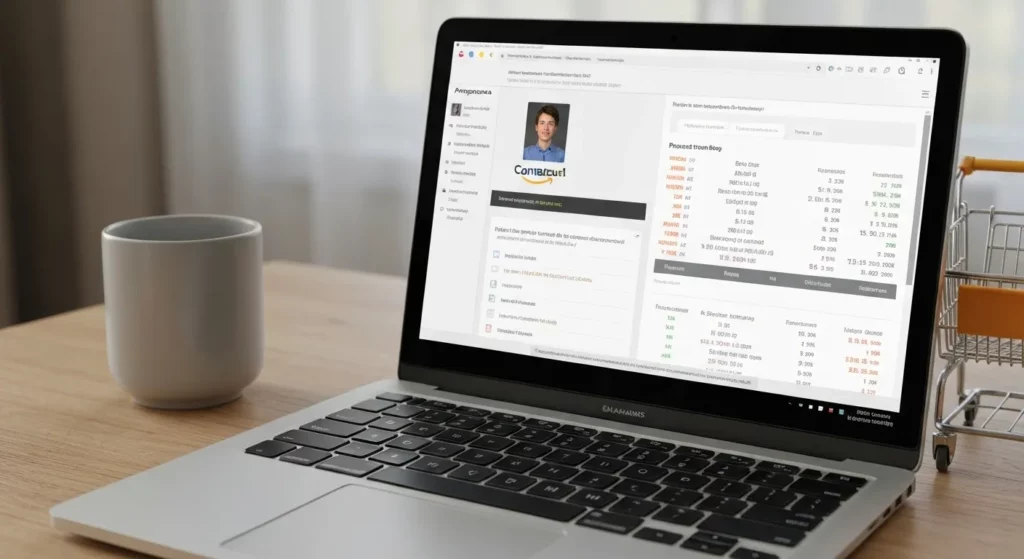If you don’t want to encounter a retirement emergency, you need to start saving money now!
Let’s address the elephant in the room: whether you’re a retiree or you’re preparing to leave the workforce and enter your golden years, one thing’s for sure: you need money. Everything requires money nowadays, so it’s a necessity. The concept of a “retirement emergency” can feel abstract until it happens, but it often takes the form of a sudden health crisis, an urgent home repair, or the need to provide financial support for a family member. These are not just inconveniences; they can be financially and emotionally devastating events that derail your carefully laid plans for a peaceful retirement.
In my opinion, it’s far easier to save money now, when you don’t exactly need it, than it is in the middle of a crisis. Building a financial cushion proactively allows you to face the unexpected from a position of strength, not panic. Just think about a retirement emergency, such as unexpected medical expenses. You have to pay hundreds, if not thousands of dollars, and you only have a few days to get them. Without an emergency fund, you might be forced to sell investments at a loss, take on high-interest debt, or make other difficult choices. It would be tough and very stressful, adding a significant financial burden on top of an already challenging situation. The peace of mind that comes from knowing you’re prepared is truly priceless.
However, it’s never too late to start, and small changes can add up quickly. Don’t be discouraged if you feel like you’re behind. Every dollar you save today is a dollar that can work for you tomorrow. The key is to begin with manageable steps and build momentum over time. If you want to save money now and be prepared in case of a retirement emergency, I have some amazing tips for you. These strategies are practical, accessible, and designed to help you build a stronger financial future without completely sacrificing your current lifestyle. Here they are:

1. Follow the 30-day rule
One easy way to save money before you need it is to allow yourself a cooling-off period between the moment an item catches your attention and the moment you make the purchase. This is a powerful strategy to combat impulse buying, which is often driven by emotion rather than genuine need. If you want something from an online store, just add the item to your cart and then leave the page to give it further thought. This simple act creates a crucial buffer, allowing the initial wave of desire to subside so you can make a more rational decision.
In certain situations, if the shop detects that you left the basket full without ordering it, you might even receive a promotional code or a discount offer via email a day or two later, saving you money on a purchase you’ve already decided is worthwhile. If 30 days isn’t long enough, or perhaps feels too long for smaller items, you can also try shorter time frames, such as a 24- or 48-hour wait. The principle remains the same: create distance from the impulse. Moreover, this also allows you more time to think about whether you need that product or not, research better alternatives, or check if you already own something that serves the same purpose. It’s a great way to become more responsible with your spending and ensure your money goes toward things that truly add value to your life.
2. Reduce your electric bill
Another way to save some cash before you encounter a retirement emergency is to pay attention to your bills. Your utility costs are recurring expenses, so even small reductions can compound into substantial savings over a year. The good news is that you can reduce your annual electricity costs by hundreds of dollars by making both big and tiny changes to your energy usage. These changes don’t have to be drastic or expensive to make a difference.
Start with a simple audit of your home. If you see any gaps in your insulation around windows and doors, think about sealing them up with weatherstripping or caulk. This small fix can have a big impact on your heating and cooling costs. Consider installing smart power strips, which automatically cut power to devices in standby mode, preventing “phantom” energy drain. When it’s time to replace your old appliances, prioritize new, energy-efficient models with the Energy Star label. And for a truly smart home, getting a smart thermostat can optimize your heating and cooling schedule, saving energy when you’re away or asleep. Over time, even small monthly reductions in your electricity use from actions like unplugging chargers, using natural light, and washing clothes in cold water can result in significant savings, so don’t neglect this tip. It can save you hundreds of dollars that can be redirected into your emergency fund.
3. Create a 50/30/20 budget
You’re probably sick of hearing about this so often, but it’s one of the most useful things you can do today to avoid a retirement emergency. The reason it’s so popular is its simplicity and effectiveness. Everyone’s talking about how important setting and following a budget is, but sometimes people are so excited to save money that they create overly restrictive plans they can’t stick to. They forget about other important things, such as traveling and going out, which are vital for a balanced and happy life.
When you suppress yourself too much, even if you think it will help you save money in the long run, you actually cause frustration, making it harder to achieve your goals. This can lead to “budget burnout,” where you eventually give up and overspend. The 50/30/20 budget is a fantastic framework that provides structure without being suffocating, acknowledging that life is for living, not just for saving.
The 50/30/20 budget rule is exactly what you need in this case. 50% of your post-tax income can go to “needs” like debt payments, utilities, groceries, gas, medication, and other bare necessities such as rent or mortgage. 30% will go to “wants,” such as clothing, restaurant trips, concerts, traveling, streaming subscriptions, and hobbies. Finally, the remaining 20% goes straight into your savings and debt repayment goals, like building your emergency fund or contributing to retirement accounts. Don’t forget that you can adjust these percentages based on your financial goals and income. For instance, if you have high-interest debt, you might temporarily shift to a 50/20/30 plan to accelerate your repayment. The key is to be intentional and consistent.

4. Set automate transfers
We all know that life happens, and it’s hard to save money when you desperately need something or a tempting purchase arises. The willpower to manually move money into savings each month can wane. But what if you don’t think about putting money aside and it just happens? You can do so thanks to an automated transfer. This strategy is often called “paying yourself first,” and it is one of the cornerstones of successful saving.
If you set up monthly automatic transfers from your checking account to your savings account, the money will build up without any further effort on your behalf. You can easily do this through your bank’s online portal or mobile app. Schedule the transfer to occur the day after you get paid. This way, the money is moved to your savings before you even have a chance to see it and consider spending it. Start with a small, comfortable amount—even $25 or $50 per paycheck. As you get used to it, you can gradually increase the amount. This simple tip will ensure you don’t forget about your savings goals, regardless of how busy and demanding life gets. It might be harder to purchase a specific item knowing there’s not a lot of money in your bank account, but it will prevent you from having a retirement emergency by building your safety net effortlessly in the background.
5. Shop smarter
Since we all need to go grocery shopping to survive, why not do it smarter and make our money work for us? Strategic shopping can free up a surprising amount of cash in your budget. Ask your local grocery store for coupons and loyalty programs available to maximize your savings as you put things in your cart. Most stores have digital coupons you can clip in their app. Don’t forget to subscribe to their newsletter to find out about deals and discounts before anyone else. Creating a separate email address just for these subscriptions can help keep your main inbox clean while ensuring you don’t miss a good deal.
Did you know that if you use a cash-back credit card, you can get back some of the money you spent on groceries? This is like getting an extra discount on everything you buy. Some cards will offer their customers as much as 5% or 6% cash back on grocery purchases, but make sure you’re on top of the game and pay off your bill in full each month to avoid paying huge fees and interest. The high interest on credit card debt will quickly cancel out any cash-back rewards you earn, so discipline is essential.
And if you like to shop from giant retailers, such as Amazon, Target, or Walmart, you can make the most of your money by downloading the store’s app. They’re more likely to post about additional savings there, like Target’s Circle offers or Walmart’s weekly ad, so don’t miss it. Planning your meals for the week before you shop is another powerful strategy. By creating a shopping list based on your meal plan, you’ll buy only what you need, reduce food waste, and avoid the temptation of impulse buys in the snack aisle.
If you need extra help, you can check out apps such as Flipp to help you sort through coupons and flyers from local stores by entering your ZIP code. This makes it easy to see which store has the best price on items you need before you even leave the house, saving you both time and money.
… We have many other tips on saving to avoid a retirement emergency, so keep reading!
6. Lower your car costs
Your car is probably one of the best things you own, offering freedom and convenience, but let’s face it: it costs a lot of money. Between the loan payments, insurance, gas, and potential repairs, vehicle ownership is one of the biggest expenses for most households after housing. These costs are only a few of the things that make it a high-maintenance item.
If you have an auto loan, you might save a significant amount of money by refinancing and taking advantage of lower interest rates, especially if your credit score has improved since you first bought the car. A lower interest rate can reduce your monthly payment and the total amount you pay over the life of the loan. Similarly, if you regularly shop around for auto insurance, you’re more likely to save money than just letting your current policy automatically renew. Get quotes from several insurers at least once a year; you may also find discounts for bundling your auto and home insurance.
Another way to save money before a retirement emergency strikes is to only use your car when needed. For short errands, consider walking or biking. Look into public transportation or carpooling for your daily commute. Make sure you also free your trunk from heavy and unnecessary items and refrain from needless sudden acceleration and hard braking, as aggressive driving habits can lower your gas mileage. Simple maintenance like keeping your tires properly inflated and getting regular oil changes can improve fuel efficiency and prevent more costly repairs down the road. These little steps will make a huge difference and will help you reduce continuous auto maintenance expenses.

7. Track your spending
Some people overestimate the power of tracking, but if you want to save money before a retirement emergency forces you to do so, it’s time to pay attention. You can’t manage what you don’t measure. Tracking your spending is like turning on the lights in a dark room; it gives you a clear picture of where your hard-earned money is actually going. Each time you pay for something, write down in your notes app or on a piece of paper how much you spent and on what. You can also use a simple spreadsheet or a dedicated budgeting app like Mint, YNAB, or PocketGuard.
Count all the expenditures at the end of the day and then again at the end of the month, so you can have a clearer vision regarding your costly expenditures. This will make it easier to cut down on unnecessary things and put more towards your savings. The goal here isn’t to judge yourself, but to gather data. You might be surprised to find your “spending leaks”—small, frequent purchases that don’t seem like much individually but add up to a significant amount over a month. I followed this tip for a couple of months and I was shocked at how many small things I was buying weekly: from coffees, ice creams, and sandwiches, to lots of online courses that I’ve never taken. Identifying these patterns is the first step toward changing them and redirecting that cash toward your savings goals.
8. Map out your big purchases
Just because you want to save money while you can doesn’t mean you should stop spending it on important items. Life goes on, and you will eventually need a new appliance, a piece of furniture, or a computer. If you have a big purchase planned, keep reading, because I know how you can spend less by being strategic with your timing.
If you plan to purchase gadgets, vehicles, furniture, appliances, and other big items by yearly sale times, you’ll still have a lot of money in your pocket. For example, major appliances often go on sale around holidays like President’s Day, Memorial Day, and Black Friday. Electronics are cheapest in November, while furniture deals can often be found in January and July. Don’t just assume a deal is a great money-saving tool; rather, keep track of the prices over time to make sure you’re not tricked by clever marketing. Sometimes retailers inflate a price just before a “sale” to make the discount look bigger than it is.
I know your time is important, which is why you should let the apps work for you. The Camelizer browser plugin, for instance, can track prices on Amazon and show you an item’s entire price history, notifying you when they drop to a price you’re willing to pay. Moreover, the Honey browser plugin searches for cheaper pricing elsewhere and automatically pulls in and tests promo codes at checkout, so you don’t have to search for them yourself. It’s a simple tool that can save you a lot with minimal effort.
You can also use the ShopSavvy app to ensure you receive the greatest bargain when you shop in person. It notifies you when prices drop elsewhere and allows you to scan bar codes to compare prices at nearby stores and online retailers, saving as much as you can. Also, don’t overlook the market for high-quality used or refurbished items. This can be a fantastic way to acquire what you need for a fraction of the cost of buying new. Have you ever tried an app like this? Did you enjoy using it? Share your experience with us!
If you want to save cash, but have a hard time doing so, I recommend you check out this lovely cash vault wooden box to keep you motivated. Building these small, consistent habits is the most reliable path to financial security. By taking control of your spending and saving now, you’re not just avoiding a potential retirement emergency; you’re actively building a more peaceful, secure, and enjoyable future for yourself. If you enjoyed this article and want to check out something else from The Price Makers, here’s a great post for you: Free Money? Here Are 7 Sure Ways to Get Them














